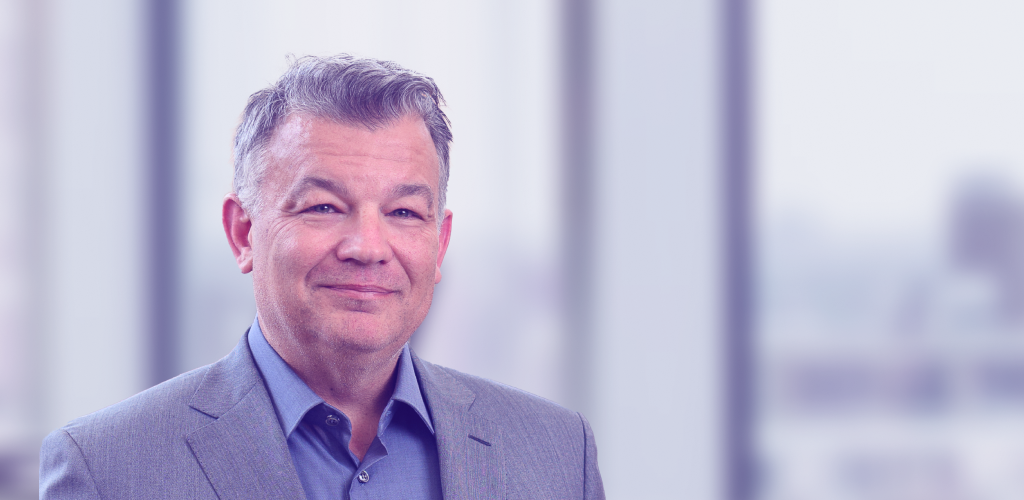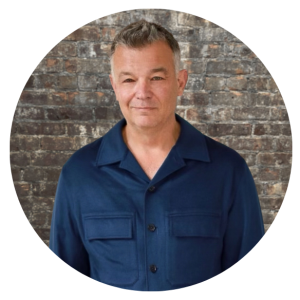Private Equity in US and European Manufacturing | John Stewart MiddleGround Capital | PREQIN Q&A
Kentucky-based MiddleGround Capital takes a hands-on approach to buyouts and transforming industrial companies

John Stewart, Co-Founder and Managing Partner, MiddleGround Capital
John Stewart is the Managing Partner and CIO of MiddleGround Capital, which he co-founded in 2018. He started his career as a line worker at Toyota Motor Corporation and held numerous management and executive positions over 18 years. John moved into private equity in 2007 at Monomoy Capital Partners.
Based in Lexington, Kentucky, MiddleGround is a private equity firm that backs lower-middle-market B2B industrial and specialty distribution companies in North America and Europe.
Shaun Beaney, Editor of Preqin First Close, spoke with John about value creation in manufacturing, supply chains, and staying close to the production line.
Tell us a little about how and why you set up MiddleGround Capital in 2018.
I started my career in industry. My MiddleGround partner, Scot Duncan, and I worked for Toyota. I started as a line worker on the night shift. Scot started as an engineer. Over an 18-year career, I got my undergraduate degree as I worked at Toyota’s largest factory in the world, in Georgetown, Kentucky. I was promoted successively through the organization and went through their executive training program. Then I was dispatched to run Toyota’s manufacturing in the UK.
In 2007, I was recruited to join Monomoy Capital, a private equity firm in New York. At Toyota, private equity firms had been buying some of our suppliers, and I thought that would be an interesting next move in my career. I wanted to do something more entrepreneurial, so I went there as an operating partner. Over a 10-year career, I ended up leading deals and doing transactions.
Then, Scot and I thought we’d go out and start a firm, focusing on industrials in the lower mid-market – with our background as operators.
Who backed your first and second funds?
It was mainly institutional capital. We had 22 LPs in Fund I, which was $460mn – mostly endowments, foundations, pensions, and insurance companies. Credit Suisse helped us raise our first two funds. The second fund in 2021 was $800mn.
Has your investment strategy changed over the past eight years?
We’re lower-middle-market, industrial B2B, and specialty distribution. We like to buy companies that have less than $350mn of revenue. We like to have the flexibility to write $30mn equity checks on the low end, and on the high end, we can write $100mn-plus.
We have a really robust co-investment program because I realized it was a good way to create some loyalty with LPs and create incremental value. We targeted 30% in each deal as co-investment on a no-fee, no-carry basis. Then some larger deals started to come through the funnel. We ended up doing six deals over $150mn of equity with co-investment.
We’ve stretched out to do some larger deals, but we still focus on the same space.
What kind of mid-market deals do you like doing?
We like companies that supply other industrial customers. I like to make components. I don’t like to make final parts.
At Toyota, what I found in the supply chain was that the big OEM manufacturers of cars and industrial products manage their customer bases pretty well. A 10% EBITDA margin business is considered pretty good.
As you start to go down the supply chain, companies are not as heavily managed because the supplier is managing other suppliers of components. You’re buying a lot of the raw materials directly from the mills, manufacturing them into a product, and selling to another industrial company.
In North America, there are about 85,000 smaller businesses like this. A lot of them are owner-operated or family businesses in general.
Can you give us examples?
The first company we acquired in our first fund was called Alco, which manufactures hydraulic connectors. The first deal we’ve done from Fund III was a public-to-private of a business called Starrett, which manufactures test and measurement equipment like calipers.
We bought three divisions of a Dutch conglomerate. Vytl Controls Group was a corporate divestiture of a marine industrial valve manufacturer. The equity check was $275mn, with co-investors. We put a management team in place. We put in an IT system. We consolidated facility locations and helped them to source their products and raw materials.
You emphasize your ‘operationally focused’ approach. What does that mean?
When we go in, we touch every line item of the P&L balance sheet of the company that we can improve, based on our 30-plus years of knowing how these companies should operate and 18 years of private equity experience. We look at how we can improve working capital management, supply-chain management, inventory management, and efficiency on the shop floor. We call this the value creation plan.
We try to stay away from commoditized types of products and deal more with products that have an engineered component. That makes us very resilient when it comes to the environment we’re in today.
What does that usually mean in terms of headcount and employee relations?
When you look across our portfolio, we’ve raised starting wages at all these companies in excess of 30%. Industrial companies are seeing a lot of headwinds when it comes to finding people who want to work on the night shift at a factory, so we automate the factories. We have an in-house automation team. We do that to get more output from a company with the same number of employees. Demand is increasing, but there’s not enough workforce, so we use this to raise wages for workers and train them in how to run the automation.
So, it’s about improving productivity?
Operational efficiency in this market doesn’t really mean job reduction. It means increasing output. There are instances where we’ll close a factory in one location and consolidate it into another, but it’s not the primary value driver.
We go into all of our companies to meet employees at every facility, explain what private equity is, what our strategy is, and what we’re trying to execute at that company – to demystify it.
How does uncertainty about the economic outlook and international trade affect how you price, finance, and transact deals right now?
Noise and uncertainty are not good. It’s been very tricky on the M&A side because of the rising interest rates and a real clampdown on underwriting.
Because we’re fully underwriting the value creation, we put 55–60% equity in these deals. We don’t put a lot of leverage in our companies. Many private equity firms will try to put in 30%, 35%, or 40% equity to drive their returns. When that leverage wasn’t available, it almost shut down the market completely. At the end of Q1 last year, we started to see non-traditional lenders cut their spreads pretty aggressively. It applied pressure on the commercial lenders, so liquidity opened up at the beginning of Q2 last year. Better assets come into the market because there was a lot of pent-up demand.
Things slowed down a little bit this year when tariffs were announced. The M&A environment is pretty lumpy. It’s made it a lot more challenging in private equity, for sure.
You describe your background as ‘non-traditional’. In what way do you feel different from other people in private equity?
I started my career as somebody who went to work for $10.77 an hour. I try to keep that mindset in everything that we do. It’s a very blue-collar kind of mentality. People in MiddleGround would probably tell you that the people in the firm who keep the latest hours are probably me and Scot. We’re very hardworking.
We’ve had some pretty good success with our funds, and our team has grown. But we still like to be out at the plants and the facilities, working through issues and problems. That’s where we get a lot of satisfaction in the job.
Original article linked here.
Shaun Beaney is Editor of Preqin First Close. It’s quick, easy, and free to subscribe here.
Preqin, a part of BlackRock, offers premier private capital performance data and benchmarks, capturing returns worth over $13.5tn in market capitalization across 21,100+ private capital funds worldwide, helping investment professionals make confident decisions when identifying and evaluating new opportunities.
Special thanks to Maya Hanowitz at Dukas Linden Public Relations, and Nolan Tiss at BlackRock.

John Stewart is the Founding and Managing Partner at MiddleGround Capital, a private equity firm investing in B2B industrial manufacturing companies across North America. Learn more about John Stewart here.
